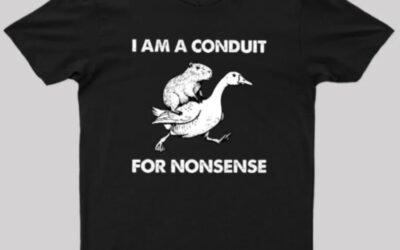drive social media lawsuit: What You Need to Know

The drive social media lawsuit has made headlines, sparking conversations about online safety, privacy, and accountability. But what does it really mean? Why is everyone talking about it? Simply put, the lawsuit targets a social media company called Drive Social Media, which has been accused of breaking certain rules, misleading users, and possibly causing harm. These issues matter because millions of people use social media daily. When companies don’t follow the law, users can be affected in ways they don’t even realize. In this article, you’ll find out everything you need to know—without any complicated legal talk.
What is Drive Social Media?
Drive Social Media is a marketing agency that helps businesses grow through social media strategies. They create ads, build online campaigns, and help brands reach customers online. The company promises strong results and often uses data and online tools to track and improve ad performance. But with great power comes great responsibility, and that’s where the lawsuit begins.
Why Was a Lawsuit Filed?
A lawsuit is a legal action taken when someone believes another person or business has done something wrong. In the case of the drive social media lawsuit, several former clients and partners claim that the company didn’t live up to its promises. Some say their money was taken without results. Others claim that the company used shady tactics to manipulate reports or online numbers. That’s not just a customer service issue—it could be a legal one too.
Who Filed the Lawsuit?
The lawsuit was filed by former clients who worked with Drive Social Media and felt cheated. Some say the company promised big returns but didn’t deliver. Others argue that results were faked using bots or misleading stats. These complaints led to legal action. That means the case is being reviewed in court, and a judge will decide if Drive Social Media broke any laws.
What Are the Accusations?
Let’s break down the main accusations in simple terms:
-
False promises: Saying they could boost sales fast and cheaply, but failing to do so.
-
Fake results: Allegedly using bots or other tricks to show fake success.
-
Poor transparency: Clients say they weren’t shown real results or were misled.
-
Misuse of funds: Some claim their money was spent in ways they didn’t agree to. These accusations could mean serious trouble if proven true.
What Laws Could Have Been Broken?
Even though business disagreements happen often, some actions can be illegal. The drive social media lawsuit may involve laws about:
-
Consumer protection: Companies must treat customers fairly.
-
Advertising laws: False ads and fake results are not allowed.
-
Fraud: Lying to gain money is a crime.
-
Contract law: If promises in a contract were broken, legal action can follow.
What Happens During a Lawsuit?
A lawsuit follows a set process:
-
Filing the complaint – The person who feels wronged starts the case.
-
Investigation – Both sides gather evidence.
-
Court discussions – Lawyers may try to settle the case.
-
Trial – If there’s no agreement, a judge or jury decides what’s fair.
Why Does This Lawsuit Matter?
You might be wondering, “Why should I care?” Well, this lawsuit shows how social media companies must act responsibly. Millions trust companies like Drive Social Media with their brand, money, and public image. If one company lies, it hurts not just their clients, but also trust in the whole system.
How Could This Affect Other Companies?
If Drive Social Media is found guilty, other marketing agencies might think twice before making big promises they can’t keep. It may push the entire industry to become more honest and fair. Transparency and ethics could become top priorities, making social media safer for everyone.
What About Small Businesses That Worked With Drive?
Many small businesses used Drive Social Media because they wanted to grow. Some now feel they wasted money or were misled. If the lawsuit succeeds, they might get refunds or help repairing their online image. Lawsuits like this can remind companies to keep promises and respect their clients.
How Social Media Can Be Misused
Unfortunately, not all companies use social media in good ways. Some buy fake followers, create false engagement, or trick users into clicking links. The drive social media lawsuit suggests some of these shady practices may have been used. When platforms are abused, real users lose trust—and that hurts everyone.
Signs of an Honest Marketing Company
If you’re ever working with a marketing firm, look for these signs of trust:
-
They share clear results and explain how they work.
-
They don’t guarantee overnight success.
-
They’re open about their prices and services.
-
They let you ask questions and make changes. Trustworthy companies want long-term partnerships, not quick cash.
How the Internet Reacted
When news of the lawsuit came out, many people were shocked. Online, users shared their own experiences, some good and some bad. The story spread quickly on Reddit, Twitter, and YouTube. Many expressed concern about transparency in the advertising industry. Others shared relief that legal action was being taken.
How Social Media Laws Are Changing
This lawsuit shows why new rules for social media companies are being discussed. Governments want to make sure that platforms and agencies play fair. New laws could demand more openness about how ads work, where money goes, and what results really mean.
How to Protect Yourself from Scams
Online scams aren’t always obvious. Here’s how to stay safe:
-
Ask for everything in writing.
-
Avoid companies that pressure you into quick decisions.
-
Research reviews and client stories.
-
Watch for fake followers or likes.
-
Ask for real proof—not just numbers on a screen.
Can Social Media Be Regulated Better?
Yes, it can. Experts say that companies should follow stronger guidelines. Regular audits, clearer contracts, and real results could help. The drive social media lawsuit might push more people to demand better regulation.
Drive Social Media’s Response
The company has denied doing anything wrong. They say they worked hard for clients and followed the law. In many lawsuits, both sides tell very different stories. That’s why courts gather facts and make decisions based on truth—not just opinions.
What Happens If Drive Social Media Wins?
If the court finds Drive Social Media innocent, they may continue business as usual. They might sue others for damage to their name. Even then, the spotlight has already changed how people view online ads and promises.
What Happens If They Lose?
If the company loses, they could face:
-
Fines or payment to clients
-
New rules about how they work
-
Damage to their reputation It could also lead to other clients filing similar lawsuits. Sometimes, one case opens the door for many others.
Lessons for Young People
If you’re a teen learning about media, this case is a great example of why ethics matter. Companies must be honest. Numbers can be faked. Just because something looks popular online doesn’t mean it’s real. Always think critically and ask questions.
Why Being Honest Online Matters
Trust is everything online. Whether you’re a business or just a user, being honest builds respect. The drive social media lawsuit reminds us that lying for likes, followers, or money can have serious consequences.
The Role of Reviews and Feedback
Online reviews helped bring attention to this case. That shows how powerful user voices can be. Leaving honest feedback—good or bad—helps others make smart choices. It keeps the internet fair and open.
What Schools and Parents Can Teach
Teachers and parents can use this case to talk about:
-
Digital responsibility
-
Spotting scams online
-
The power of honesty
-
Knowing your rights online Real-life cases like this can teach more than textbooks ever could.
Where to Learn More
Want to explore more? Try these:
-
Federal Trade Commission (FTC)
-
Better Business Bureau
-
Consumer Financial Protection Bureau These websites explain your rights and offer free help.
Drive Social Media’s Future
Whether they win or lose, Drive Social Media will likely change. New rules, better transparency, and stronger promises may come. One lawsuit can shape how a company grows—or falls.
Could This Happen to Other Platforms?
Yes. Any business can face lawsuits if they break promises or cheat users. The more we use digital tools, the more important it is to hold these companies accountable.
The Power of One Lawsuit
This case shows how one action can cause change. Clients spoke up. People listened. The world noticed. Whether big or small, speaking out matters. That’s the heart of the drive social media lawsuit.
Final Thoughts
This lawsuit isn’t just about one company. It’s about fairness, honesty, and digital trust. As more people go online, companies must be held to high standards. The drive social media lawsuit teaches that being truthful, even when it’s hard, is the right thing to do. Because online or offline—ethics always matter.
FAQs
What is the drive social media lawsuit about?
It’s a legal case claiming that Drive Social Media misled clients and didn’t deliver promised results.
Who filed the lawsuit?
Former clients who say they were harmed by the company’s actions.
What are the accusations?
False promises, fake results, and misuse of client money are among the main claims.
Could Drive Social Media go out of business?
If found guilty and forced to pay a lot, it’s possible. But that’s up to the court.
How can I avoid similar issues?
Always research companies, ask for clear contracts, and stay informed about your rights.
Why is this lawsuit important?
It shows the need for honesty and rules in the online marketing world.











